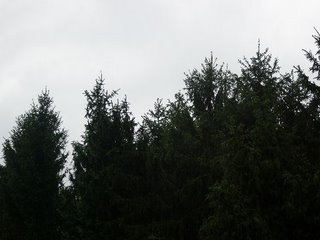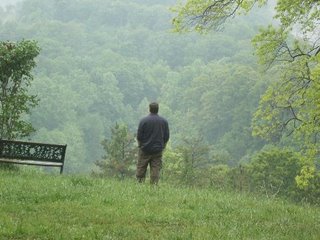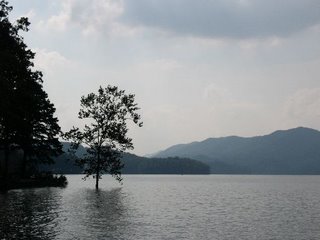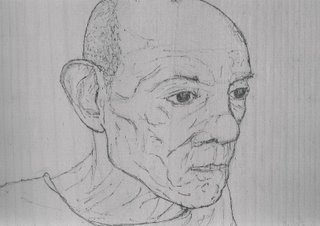In medicine I have met some incredible humanitarians. I even try to be one myself, which brings up some interesting thoughts on human goodness. It is odd that doing good would inspire anxiety, but I believe it does. I work with some incredibly caring people, but I can't help but wonder if this applies to them too. I wrote this originally in 2001 while in medical school:
 Each human role has its inherent fears. The rich fear poverty, the strong fear weakness, the independent fear impotence. But the greatest of fears must be the unspoken fears of the good person. He fears himself.
Each human role has its inherent fears. The rich fear poverty, the strong fear weakness, the independent fear impotence. But the greatest of fears must be the unspoken fears of the good person. He fears himself.
He fears that he will suddenly be exposed as the opposite of all he does. So he works even harder. His dread that he might someday be caught doing something cruel or selfish makes him into a saint. He is driven to goodness by his phantoms. He wants to see himself as someone else, someone like Mother Teresa, Martin Luther King, or Ghandi, assuming that these people never had that frightening sense of rottenness inside. So the good person becomes good at such a price. He sacrifices himself. He becomes a fiction, a shadow. Ah, but it is a beautiful shadow, something good, something he loves, something worthwhile, a puppet in an imaginary story. And despite all he does for others he dreams at night that they will turn on him and point their fingers saying, "Ha, you are not the good man you seem to be. You are a fraud!" He wakes afraid and tries to comfort himself with better thoughts.
He even tries to still do good while abdicating his claim to the title of goodness. He speaks openly of his flaws to all who praise him as good. But this only makes it worse. They praise him more because he does his good with humility. And so his isolation grows.
The good person is always out of place. Because he always does good he cannot even describe his strange feeling of inadequacy. He is most alone among other good people. “Perhaps something is wrong with me? They cannot possible feel like this.” Of course they are all uncomfortable around him for the same reason, but he doesn't know this.
Such an odd group of good people! These are the ones that really do give all. They change the world. And we admire them, because our own fears drive us to such baser things.




